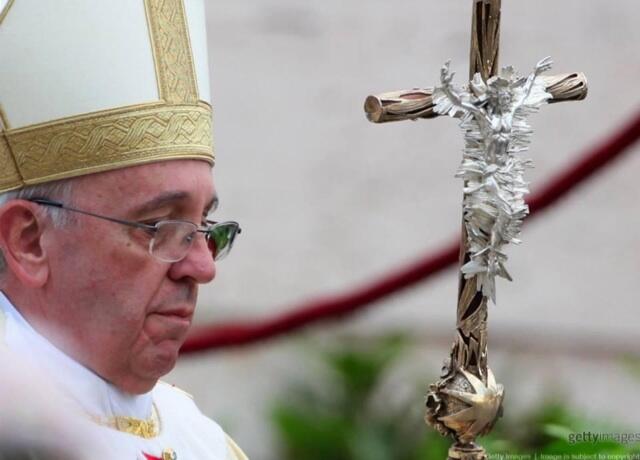A family that owns its own land or its own tools can make its own way in the world without being dependent on someone else for a “job.” Thus, Distributism seeks to extend property ownership to as many as possible, and end the concentration of ownership by few capitalists or state officials.
The ‘means of production’ are the land, tools, and equipment needed for labor to transform raw materials into goods and services. As wealth (goods or services) is only possible by the combination of the means of production, labor, and raw materials, we believe it is best when these are owned cooperatively (worker-owned) or entirely operated by the family.
Here is Pope Francis' response to that idea:
222. A constant tension exists between fullness and limitation. Fullness evokes the desire for complete possession, while limitation is a wall set before us. Broadly speaking, “time” has to do with fullness as an expression of the horizon which constantly opens before us, while each individual moment has to do with limitation as an expression of enclosure. People live poised between each individual moment and the greater, brighter horizon of the utopian future as the final cause which draws us to itself. Here we see a first principle for progress in building a people: time is greater than space. (emphasis added)
223. This principle enables us to work slowly but surely, without being obsessed with immediate results. It helps us patiently to endure difficult and adverse situations, or inevitable changes in our plans. It invites us to accept the tension between fullness and limitation, and to give a priority to time. One of the faults which we occasionally observe in sociopolitical activity is that spaces and power are preferred to time and processes. Giving priority to space means madly attempting to keep everything together in the present, trying to possess all the spaces of power and of self-assertion; it is to crystallize processes and presume to hold them back. (emphasis added) Giving priority to time means being concerned about initiating processes rather than possessing spaces. Time governs spaces, illumines them and makes them links in a constantly expanding chain, with no possibility of return. What we need, then, is to give priority to actions which generate new processes in society and engage other persons and groups who can develop them to the point where they bear fruit in significant historical events. Without anxiety, but with clear convictions and tenacity.
He doesn't seem that keen on land ownership being central to the economy. His emphasis is on time, which distributists don't discuss at all. Other remarks lead in the same direction, away from a focus on distributist land ownership and towards the urban environment:
71. The new Jerusalem, the holy city (cf. Rev 21:2-4), is the goal towards which all of humanity is moving. It is curious that God’s revelation tells us that the fullness of humanity and of history is realized in a city. We need to look at our cities with a contemplative gaze, a gaze of faith which sees God dwelling in their homes, in their streets and squares.
72. In cities, as opposed to the countryside, the religious dimension of life is expressed by different lifestyles, daily rhythms linked to places and people.
While he had a whole section devoted to the cities and urban life, he had absolutely nothing to say about the rural areas and the countryside. Not a lot of people in cities own land. You might answer that cities are the source of guilds. Fine. But Pope Francis also had nothing to say about the need for guilds or anything like it. He doesn't even mention unions, much less guilds.
What Pope Francis has to say is at least as opposed to distributism as it is to capitalism.
What Pope Francis has to say is at least as opposed to distributism as it is to capitalism.
But you won't hear the Catholic League admit it.

